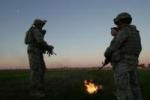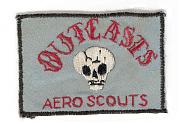Nor did the Cheyenne when the Sioux pushed them out of the Black Hills. Or the smaller tribes that were absorbed by the Aztecs to our south. There are precious few "good guys" in history. It's mostly a collection of gray (good intentions mixed with bad outcomes, or in some cases the reverse), with a few sparkling despots thrown in for good measure.
In terms of the military, we've been here before. Many times. And again we have a chance to change or break the cycle. The question remains...will we do so? Even when we were "isolationist," we tended to intervene if we thought it was in our interest to do so. The size of the military never really hindered this effort (and it accelerates if you view the western expansion as an actual conflict instead of some Oregon Trail-based migration). In fact, I'd contend that some of our best interventions (at least from a short term policy standpoint) were conducted with that smaller military.















Bookmarks